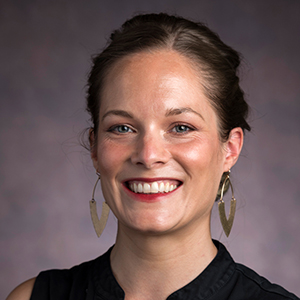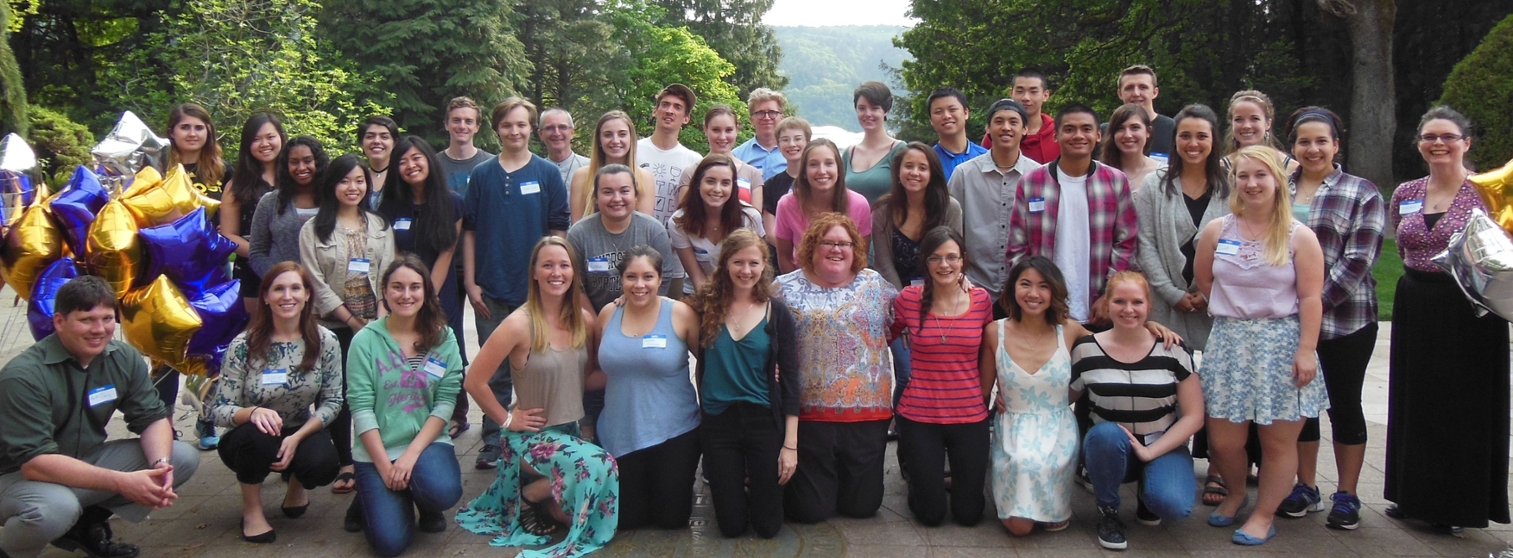Karen Bridges
 Current Position: Marketing and Communications Coordinator
Current Position: Marketing and Communications Coordinator
Alma Mater: University of Oregon (BA); Sonoma State University (MA)
Major/Undergraduate field of study: Anthropology (BA); English (MA)
What was it like being among the first in your family to go to college?
Being the first in my family to go to college was simultaneously thrilling and terrifying. My parents were not initially supportive, so I did not have their encouragement through the admissions process. Fortunately I had the support of teachers and guidance counselors, who helped me navigate essays and applications. I was so proud when I got my acceptance letter – I still have it almost 20 years later. I couldn’t wait to leave home and start my new adventure, but once I arrived on campus, I was completely lost. Academically, I had always achieved excellent grades with little effort – I had to learn how to study, think critically, and engage with the material. Socially, I had no idea how to comport myself. It was an entirely new world. I didn’t even know there was a term: first generation, for students like me, and that there was a whole community of us. I felt very alone, ignorant, and ashamed. I didn’t want to be the person who asked for or needed help. I was always struggling financially. My parents could not afford to contribute, and even with scholarships I was often working 2 or 3 part-time jobs on top of a full course load. There were times where I almost lost my housing and I was on government assistance. For my first two years especially, I felt overwhelmed, lonely, and anxious all the time. What helped me to succeed was my love of learning, and finally allowing myself to be vulnerable and ask for help. I threw myself entirely into my coursework. I found that when I did ask, my professors and university staff wanted to help. I got counseling at the health center. I met an incredibly supportive group of friends. It took me several years to finally realize how strong and independent I must have been to overcome all those challenges—at the time I felt like I was barely surviving. I still struggle with imposter syndrome, but now that I’ve completed my Master’s degree, I am also so proud of everything I’ve accomplished.
Are there any unique challenges you faced as a First Generation student?
The lack of parental support, financially and emotionally, was very isolating for me. At first I felt I couldn’t relate to anyone around me and I struggled to make friends, and the friends I did have were able to study abroad, had parents who paid all their bills, and had connections to internships or mentors to help them succeed. They could talk to their parents when they were struggling. But, this forced me to mature and be more resourceful and independent from an early age. I found jobs on and off campus, made my own connections, and gained valuable work experience. I was compelled to be more committed to my education because I was paying for it myself. I wouldn’t wish that struggle on anyone, but I’m proud of how hard I worked.
Do you have any advice for FGEN students at UP that are facing challenges?
Know that you’re not alone, and it’s okay to be vulnerable and lean on others sometimes. You are already so strong, resourceful, and successful just by being here, and you belong here. I know it’s hard to do at first, but it’s okay to ask for help—nobody truly accomplishes anything alone. University of Portland is a community where everyone is here to support your success and well-being. There’s also a very strong FGEN community, and we understand at least part of what you’re going through. We take joy in being able to help or offer advice where we can. There were so many resources that I missed out on because I was too afraid to ask.
Did a mentor play a role in your FGEN experience? How so?
I did not have one particular mentor. But my friends and counselor supported me emotionally when my parents couldn’t. Several of my supervisors at my various jobs went out of their way to find opportunities for me and help me even after graduation. My professors and advisors recognized my passion for my work, challenged and encouraged me to dig deeper and grow intellectually.
How do you feel your experience prepared you, both professionally and personally?
My experience made me realize how strong and resilient I am, but at the same time it humbled me. I used to think I wanted to do everything myself and that I’d enjoy working independently (and I still do to an extent), but now I realize the power of community and collaboration. I am here today because of the help of so many selfless teachers, counselors, friends, mentors, and even total strangers. And there’s nothing that brings me more joy than being able to help someone else. It instilled my love of learning, my desire to work in higher ed, and drove me to help others have access to (and feel worthy of!) the same opportunities I was given.
Connect with Karen

 Current Position: Marketing and Communications Coordinator
Current Position: Marketing and Communications Coordinator